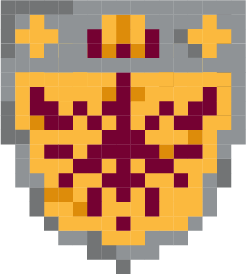The Study of Games is Multi-Institutional
Games research, via Game Studies and Game Science, is an emerging field. Collaboration across these fields is immensely valuable because it allows researchers to engage their work with multiple perspectives and circumstances, which is a crucial considering the field must grow quickly to keep pace with technological developments and industry changes. As individuals, researchers depend on the resources and circumstances of their institution. To collaborate across institutions elevates research potentials because it broadens the resource and circumstance opportunities for every individual involved. IMMERSe aims to build a base of knowledge from which to grow, thus it was identified in the conception of IMMERSe that it was necessary to leverage collaboration across university institutions. IMMERSe being multi-institutional means that individuals leverage the perspectives, expertise, resources, and circumstances of different institutes with multiple passionate researchers to develop nuanced and future-oriented research directions.

Carleton

McMaster
G-ScalE Lab
The IMMERSe network spans six partner universities: the University of California Davis, Carleton University, Concordia University, McMaster University, UOIT, and the University of Waterloo. This partnership means that IMMERSe contributors have a network of institutional thought leaders from which to seek guidance. Successful collaboration meant that researchers had access to the minds and perspectives of others working in like-minded institutions. What started as communication developed into sharing ideas, strategizing about obstacles, utilizing infrastructure and equipment, collaborating at conferences, and developing research projects from IMMERSe findings. Questions which at one time existed in a vacuum were met with fresh eyes, and it facilitated conversations between researchers who might never have otherwise met. It is in these conversations that researchers were able to overcome the constraints of their own work: refining research methodologies based on experience, learning about alternative findings, and being inspired to consider new or broader directions.
IMMERSe was leveraged to develop and sustain research institutes and centres across the 6 partner universities. In the case of the University of Waterloo, IMMERSe enabled the foundation of the Games Institute. In the cases of Concordia and UC Davis, IMMERSe was leveraged for the significant growth of the TAG Lab and the ModLab, respectively. UOIT, and McMaster grew GamerLab, and GScale, respectively. In all cases, IMMERSe being multi-institutional is synonymous with multi-centre, as the six theme leaders developed what are now some of the leading games research centres in North America. It was these research centres that truly allowed IMMERSe research to flourish, as they supplied researchers with the appropriate equipment and space for inter-disciplinary and multi-disciplinary research to occur.




